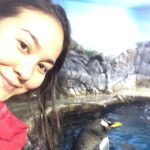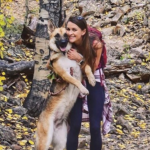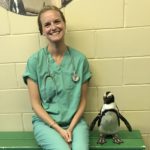Our team is focused on the animal health impacts of a changing environment. Climate change has been identified as a leading health threat of the 21st century, and the veterinary community needs to be equipped to address this emerging issue. We are a group of students, staff, and faculty at Colorado State University who are working with a diverse, global network of animal health professionals. Our program has three pillars: research, education, and action. Through our work we seek to equip people with the tools they need to protect the health of animals and the environment that sustains them.
People
news and updates view all
The first faculty member from the College of Veterinary Medicine and Biomedical Sciences to attend the summit, Colleen Duncan is passionate about understanding the health impacts of a changing climate and eager to help the CSU and the veterinary community take action.
Climate change is a global issue, but the specific health effects on pets, livestock, and wildlife vary widely by geographic region. Dr. Duncan details a variety of pathways in which animals are commonly affected.
Spurred by horse owners’ concerns about their effects on air quality, as well as the impact of air quality on horses in general, researchers launched the BREATHE (Better Racing and Exercise in Air That Horses Enjoy) project.












